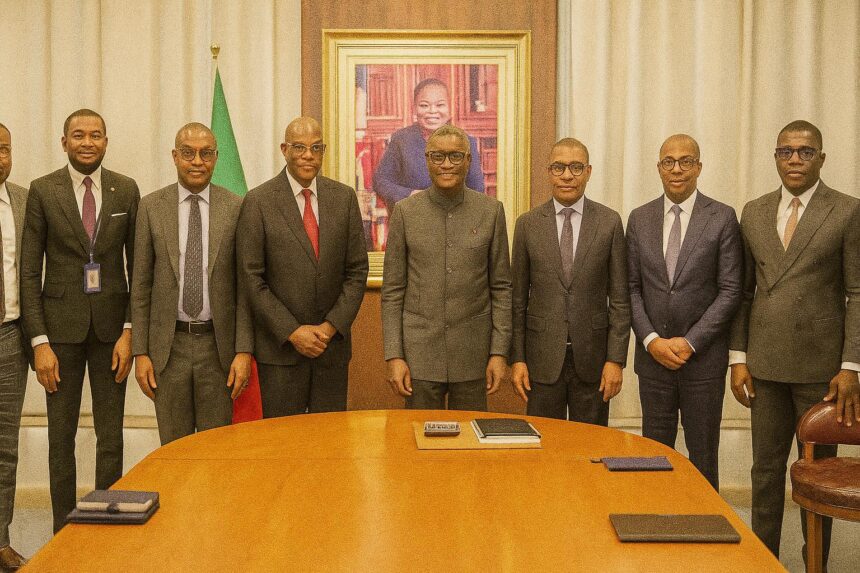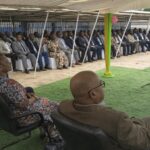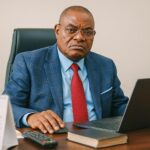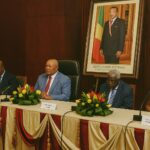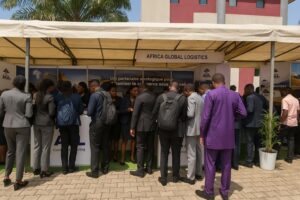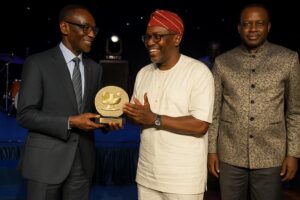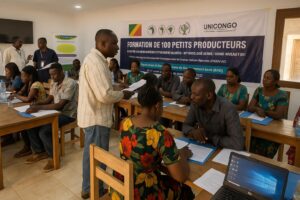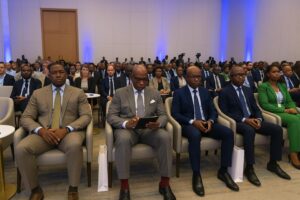Brazzaville Poised as Francophone Business Hub
The decision of the Groupement du patronat francophone to convene the seventh Forum international des entreprises francophones in Brazzaville marks a pivotal moment for Congo-Brazzaville’s international economic outreach. At first glance the announcement appears a simple rota of venues; on closer examination it reveals a calibrated strategy by national authorities and business leaders to recast the Congolese capital as the pulsating centre of francophone deal-making in Central Africa.
Architect of this diplomatic-commercial coup is Dr Jean-Daniel Ovaga, physician-entrepreneur and influential chairman of the National Union of Congolese Economic Operators. Fresh from advocating the Brazzaville candidature during the Abidjan edition of the Forum in May 2025, Dr Ovaga returned home with the title of commissioner-general for 2026 – a mandate that endows him with operational latitude and symbolic heft.
The Diplomatic Architecture Behind the Bid
Congo-Brazzaville’s foreign-policy doctrine has, for two decades, placed francophonie at the centre of its multilateral posture. By leveraging the Organisation internationale de la Francophonie’s economic branch, the Ministry of Economy and the Ministry of Cooperation have cultivated partnerships ranging from Canadian development funds to Moroccan banking conglomerates. The prospective Forum therefore dovetails with a longer diplomatic courtship that aims to translate linguistic community into investment flows (OIF economic outlook, 2024).
Minister Ludovic Ngatsé’s endorsement was rapid and unambiguous. In his words, hosting the Forum ‘reinforces our image as a hub and consolidates our active role within economic francophonie’. Such language resonates with the government’s National Development Plan, which lists services, logistics and medical tourism – sectors already championed by Dr Ovaga through his Securex Clinic – as priority growth poles.
Economic Rationale and Regional Implications
Beyond prestige, the Forum’s projected economic footprint is considerable. According to estimates circulated by the Congolese Investment Promotion Agency, the event could attract over 1 000 delegates, injecting several million dollars into hospitality and ancillary services while generating enduring memoranda of understanding in agribusiness, fintech and sustainable mining. The African Development Bank’s most recent country brief describes Congo-Brazzaville’s post-pandemic rebound as ‘steady yet in need of diversification’ – a diagnosis the Forum squarely addresses by courting non-hydrocarbon capital (AfDB, 2024 brief).
Neighbouring capitals, notably Kinshasa and Douala, have in recent years vied for the mantle of francophone business gateway. Brazzaville’s success therefore reorders the regional hierarchy, positioning the city as an interlocutor not only between francophone investors and Central Africa’s markets but also between Central African exporters and francophone consumers in Europe and North America.
Synergies with National Development Agendas
Government planners perceive the Forum as a catalyst for existing infrastructure projects. The expansion of Maya-Maya International Airport, partly financed by Sino-Congolese cooperation, will be expedited to accommodate the influx of private jets and commercial charters. Concurrently, the digitalisation of customs procedures – a flagship reform backed by the World Bank – aims to demonstrate tangible progress to potential investors who will land in 2026.
More subtly, the event synchronises with Congo-Brazzaville’s green-growth ambitions. Briefings released by the Ministry of Environment underline intentions to spotlight forestry certification and carbon-credit trading during the Forum’s thematic sessions, thereby aligning national comparative advantages with global ESG trends. Such alignment is expected to resonate with institutional investors increasingly constrained by sustainability mandates.
Logistical Preparations and Stakeholder Engagements
Dr Ovaga’s roadmap, shared during closed-door consultations with the Ministries of SMEs and Industrial Development, envisages a two-tier preparatory architecture. An interministerial task-force will coordinate security, visa facilitation and protocol, while a private-sector consortium handles sponsorship, exhibition spaces and matchmaking platforms. Early discussions with telecom operators suggest the Forum will pioneer a 5G-enabled virtual pavilion, allowing remote participation from francophone entrepreneurs unable to travel.
The commissioner-general has also initiated a diplomatic tour across West Africa and Europe to secure high-profile attendance. Rumours of keynote addresses by senior executives of TotalEnergies and the African Export-Import Bank circulate in economic circles, though confirmation is pending official schedules. Such names would guarantee global media traction, reinforcing Brazzaville’s narrative as an indispensable stop on the francophone business calendar.
A Calculated Springboard to 2026
As the countdown begins, the stakes extend beyond the three-day summit. Historical precedent suggests that well-orchestrated business forums can shift investor perception indices for a decade. Kigali’s transformation after the 2016 World Economic Forum on Africa offers a pertinent comparison, and Congolese planners are keen to emulate – and localise – that trajectory.
For President Denis Sassou Nguesso’s administration, the Forum complements broader nation-branding efforts that include sports diplomacy and cultural showcases. With regional geopolitics in flux and global investors seeking both stability and growth, Brazzaville’s wager is that convening francophone boardrooms under one roof will amplify the country’s narrative of reform, opportunity and centrality. The coming months will test organisational prowess, yet early signals suggest that Congo-Brazzaville intends to leave an indelible imprint on the francophone economic map.

